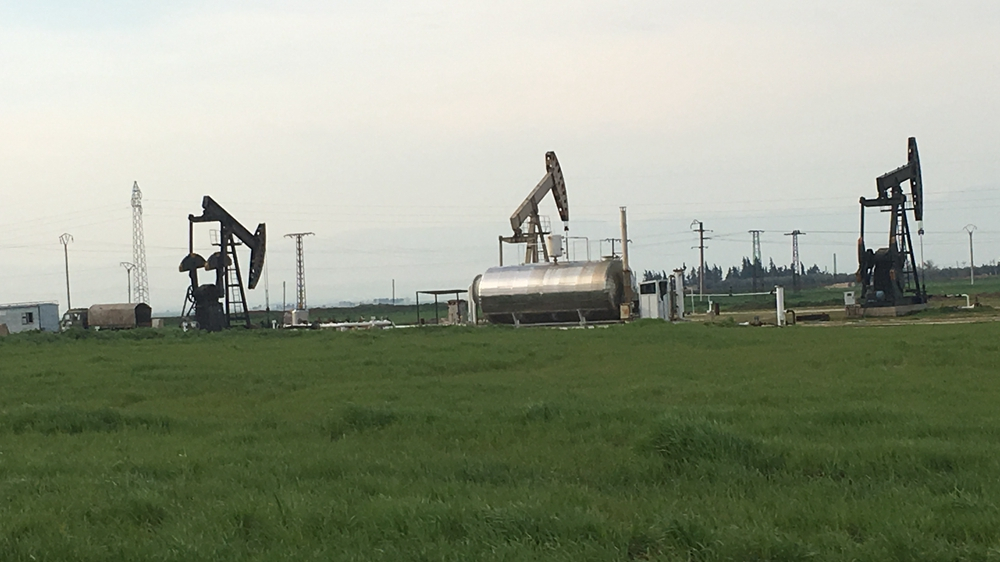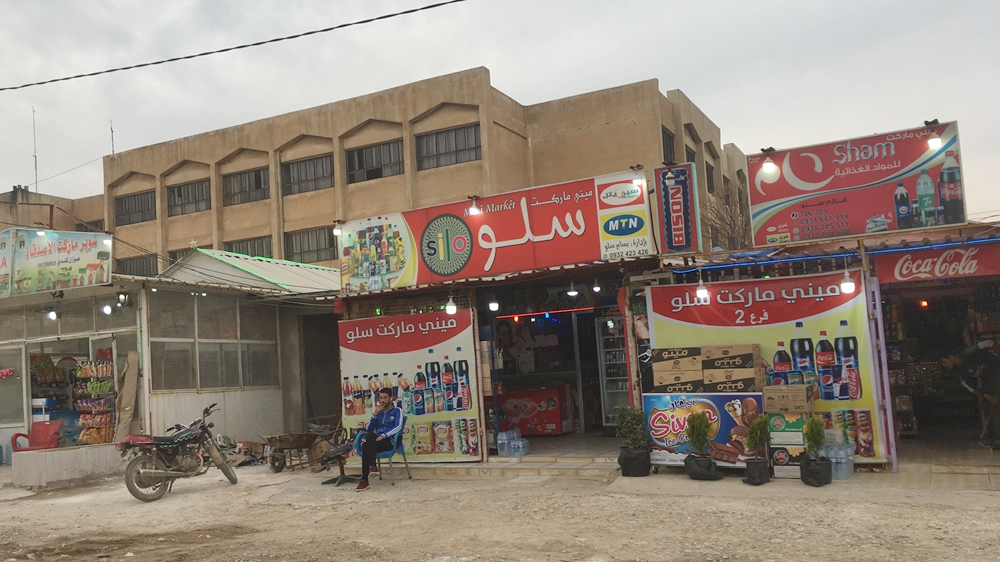
Middle East
14:38, 14-Mar-2019
Reporter's diary: Syria's Route Six
Guy Henderson

The first thing you notice is the "nodding donkeys." Hundreds of them line the vast green plains that stretch from the Tigris River on the border with Iraq, to Qamishili in far northeast Syria.
They are not animals but oil wells. In some places pools of leaking crude turn green grass to black. The thick stench of tar fills the air. Some of these pumps have been neglected but many are still nodding. They provide a vital source of wealth that every actor involved in Syria's civil war has had its eyes on.
To the right and north of us as we head along Route Six is Turkey, which now stands on the other side of a border security wall. ISIL is one threat Ankara seeks to keep out. It also sees the U.S.-backed Kurdish Peoples' Protection Units (YPG) as a major national security threat. The YPG form the backbone of the Syrian Democratic Forces, which are currently encircling ISIL's last stronghold a few hundred kilometers south of here in Baghouz.
We pass a village where the roofs of buildings have caved in from Turkish shells fired over the border last year. There is talk of a new Turkish offensive in this part of Syria but for now it is calm. Each town we pass through is bustling along as normal.

Buildings along the Route Six. /CGTN Photo
Buildings along the Route Six. /CGTN Photo
A little further on, our driver takes a small detour down a side road to our left, and as we come over a small hill there is a blue and white tented camp. It is in the middle of no where. We stop a few hundred meters away to see children playing football in the dust inside its high perimeter fence. They are not allowed to leave Roj camp. It is the place where the families of ISIL fighters who fled the caliphate's besieged enclave have been brought in recent weeks. The mothers of those children are the die-hard believers in the ISIL cause, and now that they're caught, no one is quite sure what to do with them all.
So, for the time being, this is where they stay. It is hard to see the camp's conditions from here, and going closer, we are told, is not a good idea. Kurdish authorities have now blocked all access. That also means finding out who's in them will become more difficult. So perhaps no more interviews with Shamima Begum or any other detained foreign jihadists.
Back on the main road and heading into Qamishli, we come to one checkpoint after another. And something has changed from the earlier ones in the more remote areas. Men in red berets now man the posts. Our driver explains they are military police, who have been called in ahead of the approaching Kurdish National Day celebrations to make sure people are safe. Clearly while the caliphate's final moments may be close, Syria's Kurds still see ISIL as a threat.

SITEMAP
Copyright © 2018 CGTN. Beijing ICP prepared NO.16065310-3
Copyright © 2018 CGTN. Beijing ICP prepared NO.16065310-3